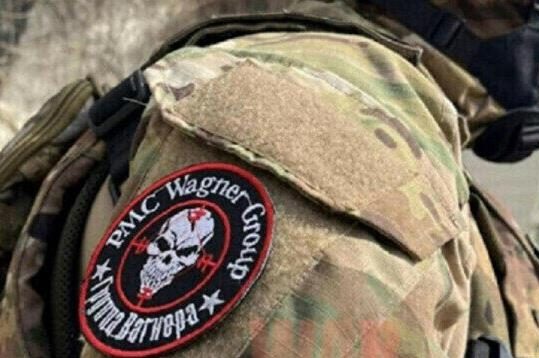The Wagner group (Группа Вагнера) is a private paramilitary mercenary group, operating as a contractor intervening in various conflicts. Most recently, it has become evident that there exist significant ties that link the group to the Russian state – so while officially it describes itself as a private organization, its recent activity in support of the Russian invasion of Ukraine raises questions about state neutrality. Furthermore, Wagner has been able to breed and grow in a state where paramilitary groups are forbidden; either the Wagner group has somehow found a loophole in the Russian legal system or it entertains deep ties to the state and allows for covert operations under the banner of plausible deniability.
The group’s activity has evolved since its inception: it was first noted during the Donbas War in Ukraine, providing aid and support to the pro-Russian Luhansk and Donetsk self-declared Republics. Since then, it has reportedly been seen in action internationally, focusing mostly on the Middle East with significant operations in Syria (supporting Assad’s government) and Libia (alongside Khalife Hifter) as well as having a very strong presence in Africa – notably in South Sudan, Mali and Mozambique. The Wagner group provides well-trained soldiers that will fight for money and bear little respect for international law and human rights. Numerous reports have detailed horrendous human rights abuses and war crimes perpetrated by Wagner mercenaries during operations, ranging from senseless beatings, robberies to rape and arbitrary killings of civilians and the torturing of deserters. The reputation they have continued to build ever since is one of overwhelming brutality, cruelty, and aggression. The group is very mindful of its publicity and the advantage secrecy affords: 3 Russian journalists were shot dead in Central Africa while investigating the Wagner group.
Yevgeny Prigozhin found his way to power when he opened his restaurant welcoming on the regular a certain Mr. Vladimir Putin. The man known as ‘Putin’s Chef’ would weasel his way into Putin’s entourage and create, fund, and manage a group which would come to be known as the Wagner group. In a nation where the state rules supreme, Prigozhin has accomplished the unthinkable. He stands at the head of an empire: Wagner is but a tool within the entire process that has enabled him to secure extremely lucrative mining contracts and debilitate any potential competitors. While the US Treasury has sanctioned any and all activity Prigozhin undertakes, it has not stopped him netting a reported 250 million dollars in the four years leading up to the Ukrainian invasion. While Putin has repeatedly denied any links to the Wagner group, the group regularly receives military equipment and training from the Russian MoD. The group is headed by an ex-Spetsnaz: Dmitry Utkin, and under his harsh direction and aided by Prigozhin’s resources and contacts, the organisation has burgeoned.
Most recently, the Wagner group has been on the frontlines in Ukraine, giving tactical and military support to the Russian side. However, the Wagner group has been shifting recently. Reports of the group growing in size can be attributed to Wagner bolstering its forces by recruiting directly in Russian prisons. Prigozhin has been spotted giving impassioned speeches, promising convicts a presidential pardon and salary in exchange for six months of service. Where in Africa the group has always relied on recruiting veteran soldiers and ex-special forces that can operate with efficiency and ruthlessness to win battles, the new recent recruitment process has enabled the Wagner group to shift strategies and follow the state’s; relying on ‘overwhelming force’ and numbers to crush their opponents. Practically this has led to Wagner sending minimally trained prisoners to the front, considering convicts as sacrificial fodder to overwhelm the Ukrainian forces (source). Another shift in the group has been its recent visibility; while subject to exposés and reporting, the Wagner group itself seems to have adopted a new PR strategy based on propaganda and visibility, launching a Telegram channel and even producing a propaganda movie ‘The Best in Hell’.
This shift in policy is reflexive of the huge losses Wagner has been taking in the Ukraine war, suffering heavy attrition, and losing control of captured territories. It is also indicative of the loss in recruitment, even in prisons where the convicts, having heard of the brutal conditions, danger, and horror stories, are not signing up as fast as they were before. The US estimates that Wagner has lost more than 30,000 casualties since the start of the invasion, with about 9,000 killed in action and 90% of the Wagner group soldiers killed are ex-prisoners.
Wagner’s horrors don’t stop at the battlefield; the families of mercenaries and fighters mourn their losses deeply and have received no compensation from the group for the loss incurred. While Prigozhin has announced he has stopped recruiting prisoners this does not signal the end for the group. It maintains a very strong presence in Africa and has built up a sizeable contingent of veteran and elite fighters. The Wagner group is a shifting presence that now presents itself as an opportunity for disenfranchised young men, parades its military victories, and hides its war crimes. The Wagner group is Russia’s scalpel, operating wherever it needs to be and as ruthless and brutal as the victory requires.






This is a powerful and terrifying military mercenary group.